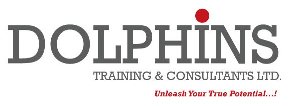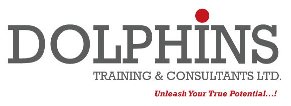
We Push the Human Race Forward... So Do You...
►Discover more Amazing programs from below...
►Find Your Greatness....
►Unleash Your True Potential....!

The People Side of Project Management..
These influential skills are instilled in participants through real-world scenarios; the concepts and methods learned are immediately usable in the workplace, leading to a greater retention of newly acquired skills, measurable project improvements, and the achievement of desired project results.
Consisting of five days comprehensive workshop, it emphasizes the successful planning and initiation phases of the project management discipline. In addition to providing technique-based competencies, the Practitioner Program teaches participants the "softer" skills as well, such as negotiation techniques, getting management buy-in and effectively working with others.
Target Audience:
Those who want to understand project management skills and concepts and who must influence projects customers and other team members.
Pre-requisites:
Their are no pre-requisites for this course.
At Course Completion:
After completing this course, participants will be able to:
• Build a Work Breakdown Structure (WBS).
• Use a network diagram to display a Project Evaluation and Review Technique (PERT) chart.
• Use the Critical Path Method (CPM) in the network diagram to ensure the correct project duration.
• Estimate and schedule project tasks.
• Apply resources to a project plan.
• Explore different personality types and learn how they affect project management.
• Apply time-tested tools and techniques to actual projects.
• Create and communicate a shared sense of purpose between the project team and stakeholders about your project.
• Involve and engage key customers and use the views of others to create commitment and advance your project.
• Prepare to make difficult requests and influence people with whom you do not have official power; for example, obtaining additional resources for your project.
• Use a negotiation model that guarantees common understanding of the issue and creates accountability for and ownership of the final solution. Listen to and resolve stakeholders¡¦ concerns.
• Use group facilitation skills to create a common reference point that includes the description of the business problem, where the project is going, how to actualise it, and stakeholder involvement at any given point in the project.
• Identify key stakeholders for the project to understand their assumptions and expectations and to get them involved at the right time.
• Negotiate agreements that get your project started correctly and keep it moving along.
Outline:
An Overview of Project Management
• The characteristics of a project.
• Project management processes.
• Project success and failure.
• Critical success factors and components.
• The effective project manager skills and characteristics.
• Roles and responsibilities.
• The time, cost, and scope target.
The People Side of Project Management
• Understanding people.
• Learn the use style models.
• Flexing your style.
• Understanding differences.
• Communicating.
Planning the Project
• The components of the plan.
• Introduction to the case study.
• The project charter.
• The work plan.
• The control plans.
• The functions of a good project plan.
Work Breakdown Structure (Work Plans)
• Defining the work to be done.
• Creating the WBS demonstration of technique.
• The WBS task and the work package.
• Methods of subdivision.
• Use of the WBS.
Estimating
• Estimating accuracy.
• Estimating concepts and methods.
• Task-based estimation.
• Effort, productivity factors, influence factors.
Scheduling
• Schedule concepts and methods.
• Network diagrams.
• Precedence logic.
• Estimate duration.
• Create a network diagram demonstration of technique PERT/CPM.
• Allocation of resources.
• Gantt charts/histograms.
Risk Management
• Evaluation of risk.
• Identification, assessment, quantification, and contingency planning.
• Risk consequences and contingencies.
• A technique for planning for risk.
• Cost/benefit/risk considerations.
Project Control
• Measurement, evaluation, and quality control.
• Prerequisites to effective control.
• Key indicators.
• Change management and control.
• Progress reporting.
Project Completion
• Management of project completion.
• Post implementation.
How to Build Commitment and Accountability Through Effective Negotiation
• Common deficiencies and problems with negotiating agreements.
• Key elements in building commitment.
• Negotiation principles.
• 8-Step negotiation model/process/practice simulations.
Influence Through Selling Ideas
• Initiating negotiations, promotion ideas, making difficult requests.
• Participant application to real project situations.
Group Facilitation
• Conceptualising and planning a successful facilitation.
• Modified 8-Step negotiation model for groups.
• Facilitation tips to jump start and advance discussion/ground rules for facilitators.
Process Start-Up Matrix
• Components: scope facilitation, stakeholder map, and force field analysis.
• Building a sense of project purpose/application to team building.
• Responding to the project management process by using participants actual projects.
Scope Facilitation Technique
• Group facilitation process gets people excited about change.
• Builds commitment between team and stakeholders.
Stakeholder Mapping and Analysis
• Identify those who can help advance the project.
• Identify their assumptions and expectations about the project.
Force Field Analysis
• Group facilitation process quickly uncovers the constraints, assumptions, and risks.
• Create strategy to respond to barriers associated with your project.
The Art of Managing Resistance
• Understand your role in resistance.
• Respond to resistance by defining causes and create appropriate actions.
Reserve Online Today..► View Testimonials...


.jpg)
.jpg)
.jpg)
.jpg)

.gif)


.jpg)
.jpg)
.jpg)


.jpg)